Forum Speakers
-
Jane Baldwin *18
Postdoctoral Research Fellow, Lamont-Doherty Earth Observatory, Columbia University.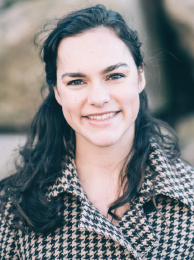
Baldwin studies how atmospheric dynamics influence regional climate, with a focus on climate change and policy applications. Currently a postdoctoral research fellow at Columbia University’s Lamont-Doherty Earth Observatory, Baldwin was a postdoctoral fellow at PEI after receiving her doctorate in atmospheric and oceanic studies from Princeton. She was a PEI-STEP Fellow from 2015-2017.
-
T.A. Barron ’74
Author.

Barron is the author of more than 30 bestselling books for children and young adults that celebrate the inspiration of nature and the ability of every person to make a difference. He founded a national prize for young people who help others or the environment. Barron served as a Trustee of Princeton University from 2005 to 2015 and was instrumental in the founding of PEI. He continues to support PEI through the T.A. Barron Prize for Environmental Leadership for undergraduates and the Currie C. and Thomas A. Barron Visiting Professor in the Environment and the Humanities position. Barron graduated from Princeton with a bachelor’s degree in politics.
-
Katie Carpenter ’79
Documentary filmmaker.
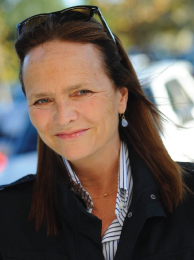
Carpenter is an award-winning documentary filmmaker specializing in environmental subjects. Her films have aired on Discovery Channel, MSNBC, Fox, ABC and PBS. She received her bachelor’s degree in comparative literature from Princeton and has co-taught several Princeton Global Seminars on documentary filmmaking at the Mpala Research Centre in Kenya with Professor Daniel Rubenstein.
-
Michael Celia *83
Director, Princeton Environmental Institute; Theodora Shelton Pitney Professor of Environmental Studies; Professor of Civil and Environmental Engineering.

Celia is director of PEI and the Theodora Shelton Pitney Professor of Environmental Studies and professor of civil and environmental engineering. His research focus includes groundwater hydrology, the sequestration of carbon dioxide, and measuring methane leakage from abandoned oil and gas wells. Celia formerly served as director of the Program in Environmental Studies. He has been involved with PEI’s Carbon Mitigation Initiative since its inception in 2000. Celia has received numerous awards for research and teaching, including election to the National Academy for Engineering. Celia received his Ph.D. in civil and environmental Engineering from Princeton.
-
Ashley Conrad-Saydah ’99
Former Deputy Secretary for Climate Policy, California Environmental Protection Agency.

Conrad-Saydah was recently the deputy secretary for climate policy at the California Environmental Protection Agency where she works on issues including land use, vehicle emissions, community engagement and the investment of cap-and-trade proceeds. Conrad-Saydah received her bachelor’s degree from Princeton in ecology and evolutionary biology with a certificate in environmental studies.
-
Steve Cosson
Artistic Director, The Civilians.
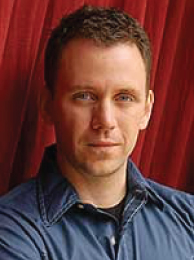
Cosson has written and directed numerous shows as the founding artistic director of The Civilians theater company. In 2009, Cosson and composer Michael Friedman — serving together as PEI Barron Visiting Professors in the Environment and the Humanities — wrote and produced, “The Great Immensity,” a musical production that explored issues of the environment and Earth’s future through themes of climate change, deforestation and extinction. The cast album for “The Great Immensity” is available for download.
-
Sylvia Dee ’10
Assistant Professor of Earth, Environmental and Planetary Sciences, Rice University.

Dee is a climate scientist at Rice University, specializing in atmospheric modeling, water-isotope physics and paleoclimate data-model comparison. Her current research focuses on past and future changes in the hydrological cycle. Dee earned her bachelor’s degree in civil and environmental engineering from Princeton with certificates in geological engineering and environmental studies.
-
Juliet Eilperin ’92
Senior National Affairs Correspondent, The Washington Post.

Eilperin is the senior national affairs correspondent for The Washington Post where she has worked for 20 years covering the environment, politics, and policy, including nine years as national environmental reporter. Recently, she has focused on President Donald Trump’s transformation of the federal government and many of President Barack Obama’s energy and environmental policies. In 2005, Eilperin was McGraw Professor of Journalism at Princeton. She graduated from Princeton with a bachelor’s degree in politics and a certificate in Latin American studies.
-
Christopher L. Eisgruber ’83
President of Princeton University.

As Princeton University’s 20th president, Eisgruber has been a leading voice for the value of research and a liberal arts education. Under his leadership, the University has prioritized environmental studies in order to capitalize on Princeton’s strengths in environmental research and education, with a focus on addressing global challenges including climate change. A renowned constitutional scholar, Eisgruber joined Princeton’s faculty in 2001 and served nine years as provost beginning in 2004. Eisgruber graduated from Princeton with a bachelor’s degree in physics.
-
Jay Famiglietti *92
Executive Director, Global Institute for Water Security, and Canada 150 Research Chair in Hydrology and Remote Sensing, University of Saskatchewan.

Famiglietti leads the Global Institute for Water Security at the University of Saskatchewan, where he is the Canada 150 Research Chair in Hydrology and Remote Sensing. His research on the effect of climate change on the water cycle and freshwater resources has been incorporated into several leading global climate models. Famiglietti has testified before and advised Congress, and he actively speaks and writes about water and climate change issues. He received his Ph.D. from Princeton in civil engineering, where he also served as a postdoctoral researcher.
-
Carl Ferenbach ’64
Chairman and Co-founder, High Meadows Foundation and High Meadows Fund; Chairman of the Board, Environmental Defense Fund.
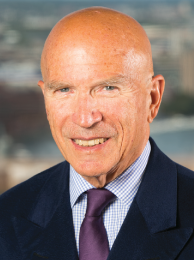
Ferenbach is the chairman and co-founder of the High Meadows Foundation and the High Meadows Fund. Earlier in his career, Ferenbach co-founded the private-equity firm Berkshire Partners LLC. He has served on the boards of numerous academic institutions, non-profit organizations and private companies. He served two terms on Princeton’s Board of Trustees. At present, he is chairman of the board of the Environmental Defense Fund and a director of Climate Central. Ferenbach is a member of PEI’s Advisory Council and a director of the Princeton Investment Company. Ferenbach received his bachelor’s degree in classics from Princeton.
-
Dana R. Fisher ’93
Professor of Sociology and Director, Program for Society and the Environment, University of Maryland-College Park.

Fisher is a professor of sociology and director of the Program for Society and the Environment at the University of Maryland. Her research focuses on the relationship between environmentalism and democracy and, most recently, on activism and American climate politics. She has published six books and numerous peer-reviewed articles. She graduated from Princeton with a bachelor’s degree in East Asian studies and a certificate in environmental studies.
-
Lisa Goddard *95
Director, International Research Institute for Climate and Society, and Senior Research Scientist, Columbia University.

Goddard is director of Columbia University’s International Research Institute for Climate and Society where she leads research on understanding and predicting near-future climate change. Her research largely focuses on diagnosing and extracting meaningful information from climate models and observations. Goddard is a globally recognized expert on El Niño and La Niña, decadal prediction and near-term climate change. She received her Ph.D. from Princeton in atmospheric and oceanic sciences.
-
Katharine Hackett ’79
Executive Director, Princeton Environmental Institute.

As PEI’s executive director since 2006, Hackett has contributed to the vision of PEI as a world-leading interdisciplinary center of environmental studies by implementing innovations across research and teaching activities, and by establishing collaborations that expand perspectives on environmental issues. During her tenure, PEI’s research and teaching programs have expanded considerably. She is credited with implementing Princeton’s Grand Challenges program, introducing an environmental internship program, and launching innovations in the Environmental Humanities. Hackett received her bachelor’s degree from Princeton and her graduate degree from Columbia University.
-
Phil Hannam *16
Energy Economist, South Asia, World Bank Group.
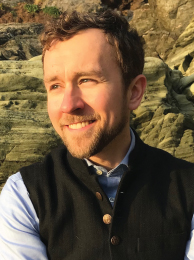
Hannam is Energy Economist for South Asia at the World Bank Group where his work is supporting the global transition to renewable energy. Hannam received his Ph.D. in public affairs from Princeton’s Program in Science, Technology and Environmental Policy. His dissertation examined the politics of China’s international support for coal power. In 2014, Hannam received a Walbridge Fund Award for Environmental Research from PEI. He participated in the Princeton Energy and Climate Scholars (PECS) graduate fellowship program.
-
George Hawkins ’83
Founder and President, Moonshot LLC; Former CEO and Manager, DC Water.

Hawkins launched Moonshot Missions to help water utilities deliver better service at lower cost. Previously, as general manager of DC Water, Hawkins transformed the utility into an innovative enterprise while tripling its investment in clean water. For many years, Hawkins taught environmental law as a lecturer in PEI’s Environmental Studies Program. He continues to advise undergraduates pursuing careers in the field. Hawkins received his bachelor’s degree from Princeton.
-
Michael Hirshfield ’70
Senior Advisor, Oceana.

Hirshfield is a senior adviser at Oceana, an international non-profit dedicated to ocean conservation. During his 18 years at Oceana, Hirshfield has served as chief scientist, lead officer for expanding into new countries, and senior vice president overseeing advocacy campaigns in North America. He has broad experience in scientific, technical and policy areas, including marine biology and policy, fisheries management, and nutrient and toxics pollution. Hirshfield received his bachelor’s degree in biology from Princeton.
-
Anne Hoskins *86
Chief Policy Officer, Sunrun.
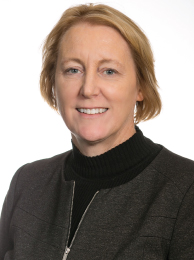
Hoskins is chief policy officer at Sunrun — the largest residential solar-energy provider in the United States — where she leads the company’s state and federal policy and regulatory advocacy. She has held positions on commissions, boards and legal teams related to major utilities, as well as for non-profit organizations working in technology, policy and sustainability. Hoskins received her Master in Public Affairs from Princeton. In 2012, she was a visiting researcher at the Andlinger Center for Energy and the Environment.
-
Paula Kahumbu *02
CEO, WildlifeDirect.

Kahumbu is CEO of WildlifeDirect, an enterprise that provides funds to conservationists working to protect African wildlife. Since 2014, she has led the campaign Hands Off Our Elephants to restore Kenyan leadership in elephant conservation by engaging all levels of society. Kahumbu also produces the award-winning wildlife documentary series NTV Wild and NTV Wild Talk TV Series. She received her doctorate in ecology and evolutionary biology from Princeton. She is a lecturer in ecology and evolutionary biology, teaching courses on campus and at the Mpala Research Centre, Kenya.
-
Karl Kusserow
John Wilmerding Curator of American Art, Princeton University Art Museum.

Kusserow is the John Wilmerding Curator of American Art at the Princeton University Art Museum. His exhibitions include “Nature’s Nation: American Art and Environment,” which he co-organized with Alan Braddock, associate professor of art history and American studies at the College of William and Mary and the 2016 PEI Barron Visiting Professor in the Environment and the Humanities. The traveling exhibition gathered works of art from the colonial period to the present to examine for the first time how American artists have both reflected and shaped environmental understanding, while contributing to the emergence of a modern ecological consciousness. Kusserow is preparing a related volume, “Picture Ecology: Art and Ecocriticism in Planetary Perspective.”
-
Joseph Majkut *14
Director of Climate Policy, Niskanen Center.

Majkut is director of climate policy at the libertarian Niskanen Center policy institute. He works on federal environmental policy, leveraging his expertise in climate science, policy and risk analysis for decision-making. He has testified before Congress on climate and scientific research. Majkut received his PhD in atmospheric and oceanic sciences from Princeton and was a PEI-STEP Fellow from 2011-2013.
-
Scott Moore ’08
Director, Global China Program, University of Pennsylvania; Lecturer in Political Science, and Senior Fellow at the Kleinman Center for Energy Policy and The Water Center at Penn.

Moore is a political scientist whose interests center on environmental sustainability, technology and international relations. His first book, “Subnational Hydropolitics: Conflict, Cooperation and Institution-Building in Shared River Basins,” examines how climate change and other pressures affect the likelihood of conflict over water within countries. Moore is director of the Global China Program at the University of Pennsylvania, as well as a lecturer in political science, and a senior fellow at both the Kleinman Center for Energy Policy and The Water Center at Penn. Previously, Moore was a Young Professional and Water Resources Management Specialist at the World Bank Group, and an Environment, Science, Technology and Health Officer for China at the U.S. Department of State where he worked extensively on the Paris Agreement on climate change. He graduated from Princeton with a bachelor’s degree in public and international affairs and certificates in environmental studies and East Asian studies.
-
Rob Nixon
Thomas A. and Currie C. Barron Family Professor in Humanities and the Environment; Professor of English and the Princeton Environmental Institute.
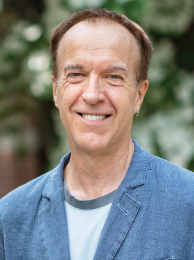
Nixon is the Currie C. and Thomas A. Barron Family Professor in the Humanities and the Environment in English and PEI. A leading scholar in the environmental humanities, Nixon focuses on climate change, environmental justice, and social movements, particularly in the global South. His 2011 book, “Slow Violence and the Environmentalism of the Poor,” won four prizes, including the American Book Award.
-
Robert C. Orr *96
Dean, School of Public Policy, University of Maryland.

Orr is the dean of the School of Public Policy at the University of Maryland and also serves as Special Advisor to the United Nations Secretary-General on Climate Change. Orr previously held the position of UN Assistant Secretary-General for Policy Planning. Orr received his Ph.D. in public and international affairs from Princeton.
-
Stephen Pacala
Frederick D. Petrie Professor in Ecology and Evolutionary Biology.

Pacala is the Frederick D. Petrie Professor in Ecology and Evolutionary Biology. His research focuses on systems ecology, climate change and the global carbon cycle, including the effect of the terrestrial biosphere on climate. Pacala was director of PEI from 2006-2015 and currently directs the Carbon Mitigation Initiative, a major University initiative that addresses the carbon and climate problem. Pacala is founding director of Climate Central, an NGO focused on climate change communications. He is a member of the board of directors for the Environmental Defense Fund.
-
Amilcare Porporato
Thomas J. Wu '94 Professor of Civil and Environmental Engineering; Professor of Civil and Environmental Engineering and the Princeton Environmental Institute.

Porporato is the Thomas J. Wu ’94 Professor of Civil and Environmental Engineering and PEI. His work focuses on ecohydrology, which examines the interactions between water and ecosystems. He is co-author of the field’s foundational text, “Ecohydrology of Water-Controlled Ecosystems.” Porporato’s expertise includes soil and water sustainability, soil-atmosphere interaction, soil moisture and plant dynamics, and soil biogeochemistry. Porporato directs PEI’s Water and the Environment Grand Challenge.
-
Anu Ramaswami
Sanjay Swani ’87 Professor of India Studies; Professor of Civil and Environmental Engineering, the Princeton Institute for International and Regional Studies, and the Princeton Environmental Institute; Director, M.S. Chadha Center for Global India.

Ramaswami is professor of India studies, civil and environmental engineering, and PEI. She is the inaugural director of Princeton’s M.S. Chadha Center for Global India, which brings together scholars and students from all disciplines to explore contemporary India, including its economy, politics and culture. Ramaswami focuses her research on urban resiliency and sustainability, particularly in India.
-
Cliff Rechtschaffen ’78
Commissioner, California Public Utilities Commission.

Rechtschaffen serves as a commissioner on the California Public Utilities Commission where his key areas of interest include decarbonization, safety, environmental justice and enforcement. He was previously a senior adviser on climate and energy to Governor Jerry Brown, as well as an environmental law professor and co-director of the Environmental Law and Justice Clinic at Golden Gate University. He graduated from Princeton with a bachelor’s degree in politics.
-
Fred Rich ’77
Author.

Rich writes about contemporary political and moral issues from an independent, non-partisan and pragmatic perspective. His most recent book, “Getting to Green, Saving Nature: A Bipartisan Solution,” proposes that bipartisan support for the American environmental movement can be restored by conservatives reconnecting with their support for conservation and by the Green movement adopting necessary reforms. He received his undergraduate degree in public and international affairs from Princeton.
-
Sarah Finnie Robinson ’78
Senior Fellow, Institute for Sustainable Energy, Boston University.

Robinson invests in large-scale climate solutions and is founding partner of WeSpire, a tech firm that powers sustainability programs at Fortune 500 corporations. She serves as a senior fellow at Boston University’s Institute for Sustainable Energy where she is founding director of The 51 Percent Project, a data-driven communications initiative to engage the cohort of Americans who are ready to become active in combating climate change. A past writer for The New Yorker and The Atlantic, as well as an active blogger, Robinson received her bachelor’s degree in English from Princeton.
-
Harold T. Shapiro *64
President of the University, Emeritus; Professor of Economics and Public Affairs.

Shapiro’s fields of special interest in economics include econometrics, bioethics, science policy and the evolution of post-secondary education. He took office as President of Princeton University in 1988 and served in that position until 2001. He was a member of President George H.W. Bush’s Council of Advisors on Science and Technology and served as chair of the National Bioethics Advisory Commission under President Bill Clinton. Shapiro is the author of several books, including A Larger Sense of Purpose: Higher Education and Society (Princeton University Press, 2005). He has received numerous honors and awards, including the National Academy of Sciences’ Public Welfare Medal. Shapiro earned his Ph.D. in economics from Princeton.
-
Robert Socolow
Professor of Mechanical and Aerospace Engineering, Emeritus.

Socolow is an emeritus professor of mechanical and aerospace engineering at Princeton where he has spent 48 years teaching, studying, and expanding how scientists and society understand the environment. For 19 years, he headed Princeton’s first interdisciplinary environmental entity, the Center for Energy and Environmental Studies, before helping establish PEI in 1994. Socolow also founded and directed the Carbon Mitigation Initiative with Princeton professor Stephen Pacala. He and Pacala are co-authors of the Stabilization Wedges – a widely published and cited intellectual framework for cutting carbon emissions with available tools.
-
Benjamin Strauss *07
CEO and Chief Scientist, Climate Central Inc.
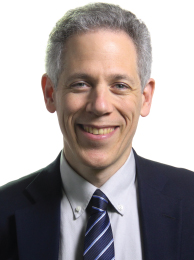
Strauss is CEO and chief scientist at Climate Central, an independent non-profit organization of scientists and journalists researching and reporting the facts about climate change and its impact. Strauss is an expert on sea-level rise and architect of the Surging Seas suite of maps, tools and visualizations that provide neighborhood-scale estimations of sea-level rise and flooding. Strauss has testified before the U.S. Senate and presented to federal, state and local elected officials. He has appeared widely in national media as a climate expert. Strauss received his doctorate in ecology and evolutionary biology from Princeton.
-
Meera Subramanian
Currie C. and Thomas A. Barron Visiting Professor in the Environment and the Humanities.
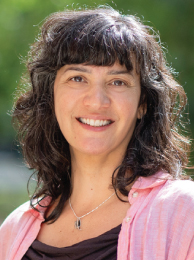
Subramanian is an award-winning freelance journalist who seeks out stories about home in the personal and planetary sense, writing about the world around and within us. She has traveled extensively in India as a reporter and published her first book in 2015, “A River Runs Again: India’s Natural World in Crisis from the Barren Cliffs of Rajasthan to the Farmlands of Karnataka.” In 2017-18, Subramanian worked on “Finding Middle Ground,” a series for InsideClimate News about how Americans perceive climate change in their own backyards; the series was a Scripps Howard Award finalist. Her writing has been included in multiple anthologies and featured in prominent national and international publications. She was a Knight Science Journalism Fellow at the Massachusetts Institute of Technology in 2016-17. Subramanian is currently PEI’s 2019 Currie C. and Thomas A. Barron Visiting Professor in the Environment and the Humanities.
-
Farhana Sultana ’96
Associate Professor of Geography and Research Director for Environmental Collaboration and Conflicts, Maxwell School of Citizenship and Public Affairs, Syracuse University.

Sultana is a Syracuse University professor who is internationally recognized for her work on water governance, the human right to water, and global water crises. Her research also focuses on climate adaption in developing countries. She has spoken worldwide on these issues and on the human dimensions of climate change, including at a Vatican workshop with Pope Francis. Her latest book is “Water Politics: Governance, Justice, and the Right to Water.” Sultana previously worked for the United Nations Development Programme (UNDP). She is the recipient of the 2019 Glenda Laws Award from the American Association of Geographers for outstanding contributions to geographic research on social issues. She earned her bachelor’s degree in geosciences from Princeton with a certificate in environmental studies.
-
Meg Symington *87
Managing Director, Amazon, World Wildlife Fund.

Symington oversees programs for the World Wildlife Fund that ensure the long-term sustainability of protected areas of the Amazon in Brazil, Peru and Colombia. She was previously an environmental adviser at the U.S. Agency for International Development, and she began her career in conservation studying tropical ecology and primate behavior in the Peruvian Amazon. Symington earned her Ph.D. in biology from Princeton.
-
Corina Tarnita
Associate Professor of Ecology and Evolutionary Biology.

Tarnita is an associate professor of ecology and evolutionary biology at Princeton where her research examines complex adaptive systems at multiple scales. Her work combines evolutionary dynamics, evolutionary game theory and elements of network theory with modeling and empirical work based on experiments and fieldwork. Tarnita is one of PEI’s associated faculty and has led several major projects as part of PEI’s Water and the Environment Grand Challenge.
-
Mary Evelyn Tucker
Director, The Forum on Religion and Ecology, Yale University.

Tucker is director of The Forum on Religion and Ecology at Yale University where she focuses on the intersection of religion and ecology. Her work includes a 10-part conference series on world religions and ecology and the Emmy Award-winning documentary, “Journey of the Universe.” She shared the 2019 Lifetime Achievement Award from the International Society for Religion, Nature and Culture with her collaborator and husband, John Grim. Tucker was a PEI Barron Visiting Professor in the Environment and the Humanities in 2012.
-
Gabriel Vecchi
Professor of Geosciences and the Princeton Environmental Institute.

Vecchi is a professor of geosciences and the Princeton Environmental Institute whose research focuses on climate science and extreme weather events, hurricanes, mechanisms of precipitation variability and change, ocean-atmosphere interaction, and detection and attribution. He is co-director the Cooperative Institute for Modeling the Earth System, a collaboration between Princeton and the Geophysical Fluid Dynamics Laboratory. Vecchi also is director of PEI’s Climate and Energy Challenge.
-
David Wilcove
Professor of Ecology and Evolutionary Biology and Public Affairs and the Princeton Environmental Institute.

Wilcove is a professor of ecology and evolutionary biology, public affairs and the Princeton Environmental Institute who specializes in using ecology, economics and policy research to solve issues related to conservation and biodiversity. His research includes the impact of agriculture on biodiversity, the wild bird trade in South East Asia, the development of coastal wetlands, and how human adaptations to climate change could affect biodiversity. Wilcove was previously a senior ecologist at the Environmental Defense Fund and the Wilderness Society.
-
Andrew Winston ’91
Author.

Winston is a recognized expert on how companies can profit from adopting socially conscious and resilient businesses models. His 2006 book “Green to Gold: How Smart Companies Use Environmental Strategy to Innovate, Create Value, and Build Competitive Advantage” was the top-selling green business book of the past decade. Winston is a regular media contributor, public speaker, and adviser for many of the world’s leading companies. He received his bachelor’s degree in economics from Princeton.
